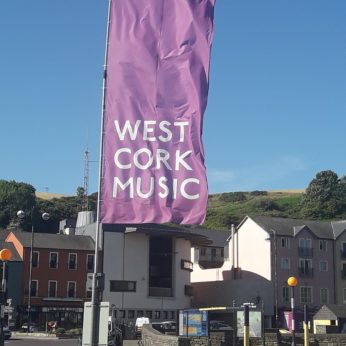Composer: Franz Schubert (b. 1797 - d. 1828)
Performance date: 03/07/2009
Venue: St. Brendan’s Church
Composition Year: 1827
Duration: 00:34:55
Recording Engineer: Anton Timoney, RTÉ lyric fm
Instrumentation Category:Piano Trio
Instrumentation Other: pf, vn, vc
Artists:
Storioni Trio (Bart van de Roer [piano], Wouter Vossen [violin], Marc Vossen [cello]) -
[piano trio]

Schubert’s
early death and traumatic last years have given commentators the opportunity to
relate the darkness of much of his late music directly to the suffering he was
experiencing. However the relationship between art and life is subtler than
this, though there can be no doubt that the lonely journeys so vividly
described in his music must have reflected his own experiences. Nonetheless it
can but excite our curiosity when a work as outwardly cheerful as this
wonderful Trio comes to be composed in the middle of his most famous tale of
inward suffering and loneliness, Winterreise.
It is as though the act of composing music of the intensity of Winterreise necessitated the composition
of its polar opposite, a work brimful of youthful vigour and freshness.
The
opening movement takes off in a joyfully light-hearted mood full of Viennese
charm. This opening theme is expanded and explored at some length before the
cello sings out the irresistible second theme over a flowing piano
accompaniment. A disturbing and dramatic pause leads to a hesitant resumption
in strange and reflective accents, a typical Schubertian stroke, which then
imperceptibly leads the music back to the exposition repeat and, second time
around, into the development. This takes us on one of Schubert’s many
unpredictable journeys through unexpected harmonic regions so, by the time this
huge movement ends, we have travelled a long way from the outward certainties
of its opening.
The
yearningly expressive Andante gives us a classic example of Schubert’s ability
to create seemingly endless melodies within a continuously evolving structure.
Behind the music’s form lies the idea of a ternary design, with the contrasting
middle section unfolding in a gently agitated C minor. Once again the reprise
of the principal theme does not coincide with a return to the home key,
Schubert again saying we have to move on for nothing can stay the same.
The
Scherzo is a delightful interlude, rhythmically temperamental in the main
section, giving way to pure melody in the simple seeming but harmonically
enigmatic Trio. The work is crowned by one of Schubert’s most exhilarating
finales, beginning once again with youthful nonchalance and rapidly progressing
into distant tonalities and capricious, asymmetrical rhythms. A mood of
cheerful playfulness suffuses the movement with a glow of good humour that
makes this one of his most popular creations.
Copyright © 2025 West Cork Music. All rights reserved.
Designed and developed by Matrix Internet